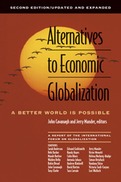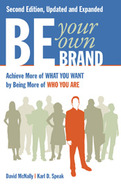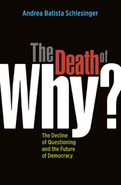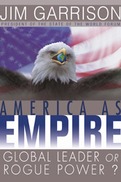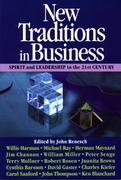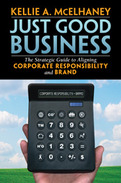- The definitive document of the anti-corporate globalization movement-the consensus report of an alliance of leading activists, scholars, economists, researchers, and writers
- Offers a constructive, coherent, positive alternative to globalization-the very thing that the anti-corporate globalization movement is always accused of not putting forward
- The International Forum on Globalization consists of the leaders of over 60 organizations in 25 countries -including such prominent organizations as Friends of the Earth, the Third World Network, the Sierra Club, the Institute for Policy Studies, Public Citizen, Rainforest Action Network, and Food First
2010
-
New edition of the book that introduced the concept of personal brand as a powerful personal and professional development tool
-
Thoroughly revised and updated, with a new material on how to use social media to build a powerful personal brand and case studies of individuals whose personal brands have changed the world
-
Filled with unique and tested tools and exercises to help you develop a distinctive personal brand
You may not know it, but you have a brand. Over time, the people who interact with you -- colleagues, acquaintance, family and friends -- develop a set of perceptions of who you are what you stand for. But does your current personal brand truly reflect who you are and the difference you make? You're probably not even aware of what your brand is now, but you can consciously create one that accurately reflects your truest personal values.
Developing a personal brand is not about constructing a contrived image. Rather, it is a process of discovering who you really are and what you aspire to be, and learning how to leave the impressions that reflect your true brand. The hallmark insight of the new edition is that the best way to establish a strong and memorable brand is to make a positive difference in the lives of others. "When you make a discernable difference in the life of another," they write, "you make a lasting impression and your brand receives credit."
Be Your Own Brand shows how to create a personal brand that is distinctive, relevant to others and consistent in the way it is perceived and presented. McNally and Speak take you through the process of identifying the components of your brand, conveying that brand to the world, checking how closely your brand aligns with those of significant others -- particularly your employer -- and assessing your progress along the way. The plethora of tested tools and exercises they provide make the experience easy, enlightening, and enjoyable.
2009
• Argues passionately for the critical importance of inquiry to a healthy democracy
• Shows how the very institutions that should be encouraging inquiry—schools, the media, government, the Internet—are actually discouraging it
• Highlights hopeful examples of people working to restore inquiry to its rightful place of importance
The spirit of inquiry is the engine of democracy. The democratic process is nothing less than citizens regularly asking what kind of society they want to live in and whom they want to lead them. But more and more people are avoiding the whole messy business of questioning. Americans are instead being trained to look for ready-made answers, with potentially dire implications for the health of our society.
In this impassioned new book, Andrea Batista Schlesinger argues that we’re besieged by cultural forces that urge us to avoid independent thought and critical analysis. The media reduces politics to a spectator sport, focusing on polls and personalities rather than issues and ideas. Schools teach to standardized tests—students learn to fill in the bubbles, not open their minds. “Financial literacy” courses have replaced civics classes, graduating smart shoppers rather than informed citizens. Even the Internet promotes habits that discourage inquiry.
Regurgitating search-engine results becomes a substitute for genuine research and reflection. Social networks promote connection rather than engagement. With all the information available online, over a third of those younger than twenty-five say they get no news on a typical day, up from 25 percent in 1998.
The situation isn’t hopeless. Batista Schlesinger spotlights individuals and institutions across the country that are working to renew a healthy sense of curiosity and skepticism, particularly in American’s youth. It is, at this point, an uphill battle but one well worth undertaking. The Death of “Why?” offers both a penetrating socio-cultural critique of our current path and a way forward for cultivating inquiry and reinvigorating our democracy.
2004
-
Asserts that America has already made the transition from republic to empire
-
Asks what kind of empire America can and should be, suggesting that America should consciously see itself as a new kind of empire, one that will work to make the notion of empire obsolete
-
Written by the President of the State of the World Forum, a global network whose members include such distinguished figures as Mikhail Gorbachev, Oscar Arias, George Schultz, Jane Goodall, and Elie Weisel
A fundamental transformation-what many are calling a "paradigm shift"-is underway today in our business and work world. This transformation goes beyond the traditional quest for productivity and profit to embrace such issues as achieving more congruence between our spiritual values and our work, creating a more caring and loving workplace, empowering people to unleash their full creativity and vision at work, and recognizing the global and social responsibilities of business.
This book brings together fifteen of the foremost visionary thinkers about these new business traditions. These visionaries include leading futurists, such as Willis Harman; authors of important new books, such as Peter Senge, author of The Fifth Discipline: The Art and Practice of the Learning Organization; leaders of influential organizations in promoting new paradigm thinking, such as Charles Kiefer, chairman of Innovation Associates; and creators of innovative business and academic programs, such as Michael Ray, developer of the path-breaking Stanford University course on "New Paradigm Business." New Traditions in Business is the first collection in one book of their seminal writings.
Part I describes the historical roots and current signs of the transformation o how the new paradigm differs from traditional business practice o the shifts in human consciousness that form the context for the transformation o the role of spiritual values, vision, and community in the new business culture.
Part II details specific strategies for business transformation: new leadership roles to build learning organizations o the qualities of truly healthy companies o fostering community in corporations o steps for putting global thinking into practice in business o developing and communicating visionary leadership o creating empowered workplaces oenabling people to tap their full creative powers o keys to practicing ethical behavior in business.
2008


